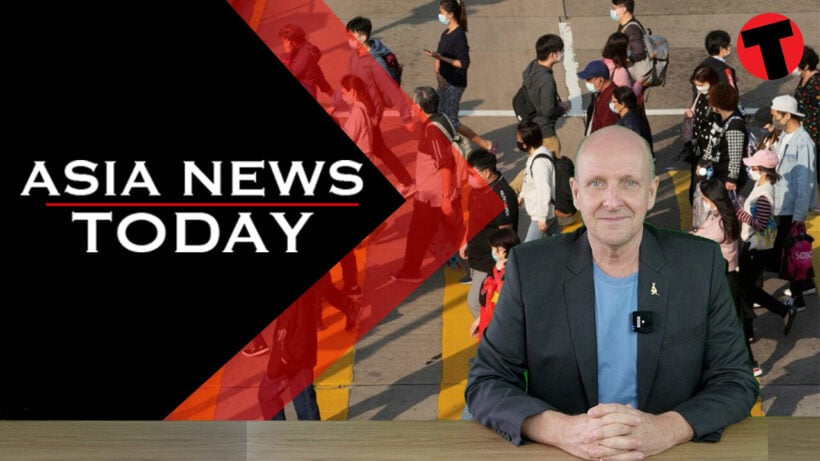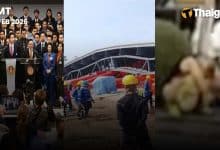Asia News Today | Vietnam’s vaccine passports & Hong Kong postpones elections

In Vietnam, The Ministry of Culture, Sports, and Tourism has released guidelines for implementing the second phase of its COVID-19 vaccine passport pilot programme to welcome international tourists.Phase two will continue from now until the country’s full reopening of tourism activities via air, land, and sea routes, which is set for March 15. During this period, overseas Vietnamese and Vietnamese citizens, as well as foreign nationals, are eligible to participate in the pilot programme through regular international flights, both commercial and charter. Tourists must have a certificate of vaccination against COVID or a certificate of recovery from COVID recognised in Việt Nam. The second dose of vaccine must be between 12 months and 14 days from the date of departure, while those who have recently recovered must have been discharged from the hospital not more than 6 months prior to departure. Tourists are also required to have proof of a negative PCR test within 72 hours before departure, and have medical insurance that covers COVID-19 treatment with a minimum liability of $20,000 US dollars.
In China, the Winter Olympics have come to end, but controversy surrounding the games will continue on, as the public continues to debate who are the real winners and losers on the world’s biggest stage. For a quick perspective from Beijing 2022, The closing ceremony of the Winter Olympics took place in Beijing last night, bringing the games to an official close. Norway finished first overall with a total of 37 medals, Germany came in second, raking up 27 medals, followed by the United States with 25 medals in total. Meanwhile, host country China won 9 gold medals, one more than its main rival the US, securing the third spot in official Olympic medal rankings. Germany came in second with 12 gold medals, and Norway finished first, topping the Olympic podium sixteen times since the games began on Feb. 4. The games drew significant criticism from the international community over China’s human rights record, with a group of Western and Asian-Pacific countries staging a diplomatic boycott, including the US, the UK, Canada, India, Australia and several other European nations. This year’s winter games highlighted the US-China rivalry, while also shining the spotlight on Russia’s continued doping offenses, including of child athletes. Notably, the American-born freestyle skier Eileen Gu competed for China, winning gold in both the Big Air and Halfpipe events, sparking intense debate about her nationality and allegiance. Competing for the US, Chinese-American Nathan Chen won gold for in the mens singles event. Meanwhile, Russian teen figure skating prodigy Kamila Valieva was allowed to continue competing after it emerged that a blood sample tested positive for at least one banned substance.The Paralympic Winter Games will take place from march 4 to the 13th in Beijing.The next Winter Olympics will be held in February 2026 Milan and Cortina d’Ampezzo, Italy.
In Taiwan, the Sports Administration announced yesterday that national team athletes must abide by a new code of conduct to compete in the upcoming Asian Games in Hangzhou, China, in September. The new code of conduct is being drafted in reposonse to Taiwanese speedskater Huang Yu-ting’s (黃郁婷) unpatriotic behavior on the international stage. Huang, who was the flag bearer for Taiwan at the opening ceremony, has drawn significant flack from domestic audiences for her actions and comments made before and during the Beijing Winter Olympics. Prior to the games, the two-time Olympian uploaded a video on Instagram of herslef wearing the uniform of the Chinese speedskating team at a training in Salt Lake City, Utah. At the 1,500m speedskating race on Feb. 7, Huang told the Beijing Daily that she was touched by the audience’s enthusiasm, saying it “felt like I was competing at home.” Then after Thursday’s 1,000m race, Huang thanked her supporters on Facebook, saying “the comment section is now open for haters and trolls.” She posted the same remark on the Chinese microblogging Web site Sina Weibo, but added that “there are no trolls in the comment section” there. The Sports Administration says it will gather representatives from the Chinese Taipei Skating Union and the Chinese Taipei Olympic Committee to discuss Huang’s case and would determine whether she should be penalized within the next few weeks.Current regulations do not prohibit Taiwanese athletes from speaking freely on social media and wearing the uniforms of other countries in practice sessions, and so are not grounds for disqualification. The current manual for the national team does not stipulate how athletes should behave and no guidance is given during the information session for athletes before international competition.
Meanwhile in Hong Kong, the government has postposed the upcoming election of its next leader by six weeks, citing the need to fight a wave of new covid infections in the region. Hong Kong’s embattled chief executive Carrie Lam announced on Friday that the election for her successor has been pushed back from March 27 to May 8, to avoid “public health risks,” despite the fact that a committee of just 1,462 people is involved in the election.Hong Kong reported more than 6 thousand new cases on Saturday, and the government announced it would turn the Kai Tax Cruise Terminal into a covid-treatment facility, with 1,000 beds to help reduce the burden on public hospitals. John Lee, the city’s top civil servant, wrote on Sunday that the government had “entered a state of all-out combat” against the virus. In Hong Kong, the position of chief executive is elected by a committee of legislators, representatives from various professions and industries, and Hong Kong deputies to the Chinese legislature, as well as other pro-Beijing representatives.
In Hong Kong, the government has postposed the upcoming election of its next leader by six weeks, citing the need to fight a wave of new covid infections in the region. Hong Kong’s embattled chief executive Carrie Lam has announced that the election for her successor has been pushed back from March 27 to at least May 8, to avoid “public health risks,” despite the fact that a committee of just 1,462 people is involved in the election.Hong Kong reported more than 6 thousand new cases last Saturday, and the government announced it would turn the Kai Tak Cruise Terminal into a covid-treatment facility, with 1,000 beds to help reduce the burden on public hospitals.John Lee, the city’s top civil servant, says that the government had “entered a state of all-out combat” against the virus. In Hong Kong, the position of chief executive is elected by a committee of legislators, representatives from various professions and industries, and Hong Kong deputies, to the Chinese legislature, as well as other pro-Beijing representatives.
Indonesia’s proposal for G20 countries to establish a global health care fund has received a positive response from other G20 nations and the World Health Organisation. US Treasury Secretary Janet Yellen says that the existing systems are not providing the funds necessary to address current health issues, while a lack of preparedness funding has made the world more vulnerable to future pandemic outbreaks. She says a financial intermediary fund would provide a dedicated knowledge base with accountability, directing resources toward this under-addressed issue. The fund could also provide incentives for low- and middle-income countries to leverage existing domestic or regional resources for healthcare spending.
Malaysian national and former Goldman Sachs employee Roger Ng has testified in a US court about his business dealings with Malaysian financer Jho Low, who is still wanted for his role in looting the state fund, the notorious 1MDB. Ng’s testimony has shed light on the bank’s lavish parties and the involvement of his ex-boss, Tim Leissner, who is also a star witness in the trial.Leissner pled guilty in 2018 to breaching US anti-money-laundering and bribery laws and is facing a lengthy jail term when he is sentenced later this year. The US District Court trial in New York of the Malaysian national is the first foreign jury hearing centred on the plundering of billions of dollars of state funds from the Southeast Asian country. The trail comes at a critical time for former PM Najib Razak, who has been convicted in the scam and is currently on bail, but continues to eye a potential second term as Malaysia’s PM.
In Thailand, the government has warned private hospitals not to reject Covid-19 patients before planned changes to the Universal Coverage for Emergency Patients schemes come into effect. The current universal coverage system stipulates that patients who are Thai nationals can be treated at any hospital for the first 3 days, before being transferred to a hospital covered by their state welfare or insurance provider. The rule does not apply to foreign nationals. Starting from March 1, Covid treatment for patients who are not serious ill will NOT be covered. If they wish to be treated at private hospitals, they’ll have to pay for it. But not until the new policy takes effect on March 1. The government has warned that private hospitals that reject treatment of covid patients will be penalised under the Medical Facilities Act.In Thailand, the cost of covid treatment can be paid for by state welfare schemes, such as university health coverage and social security. But private hospitals have been known to turn away patients who are not covered by private health insurance, citing a lack of beds.
The Asia Pacific is set to become the largest data centre region in the world within the next decade. Sydney, Singapore and Hong Kong are currently ranked among the world’s top 10 data centre markets, according to report by Cushaman and Wakefield. Northern Virginia in the US is currently the largest data centre in the world, with Singapore coming in second globally, Hong Kong…6th globally and Sydney… ranking 8th globally.Meanwhile, construction continues to increase globally, with current projects in covered markets totalling 4.1 gigawatts, an increase from 2.9 gigawatts in the previous year’s report.Larger clients are requiring larger builds, with 100 megawatt campuses increasingly common.
Latest Thailand News
Follow The Thaiger on Google News:


























